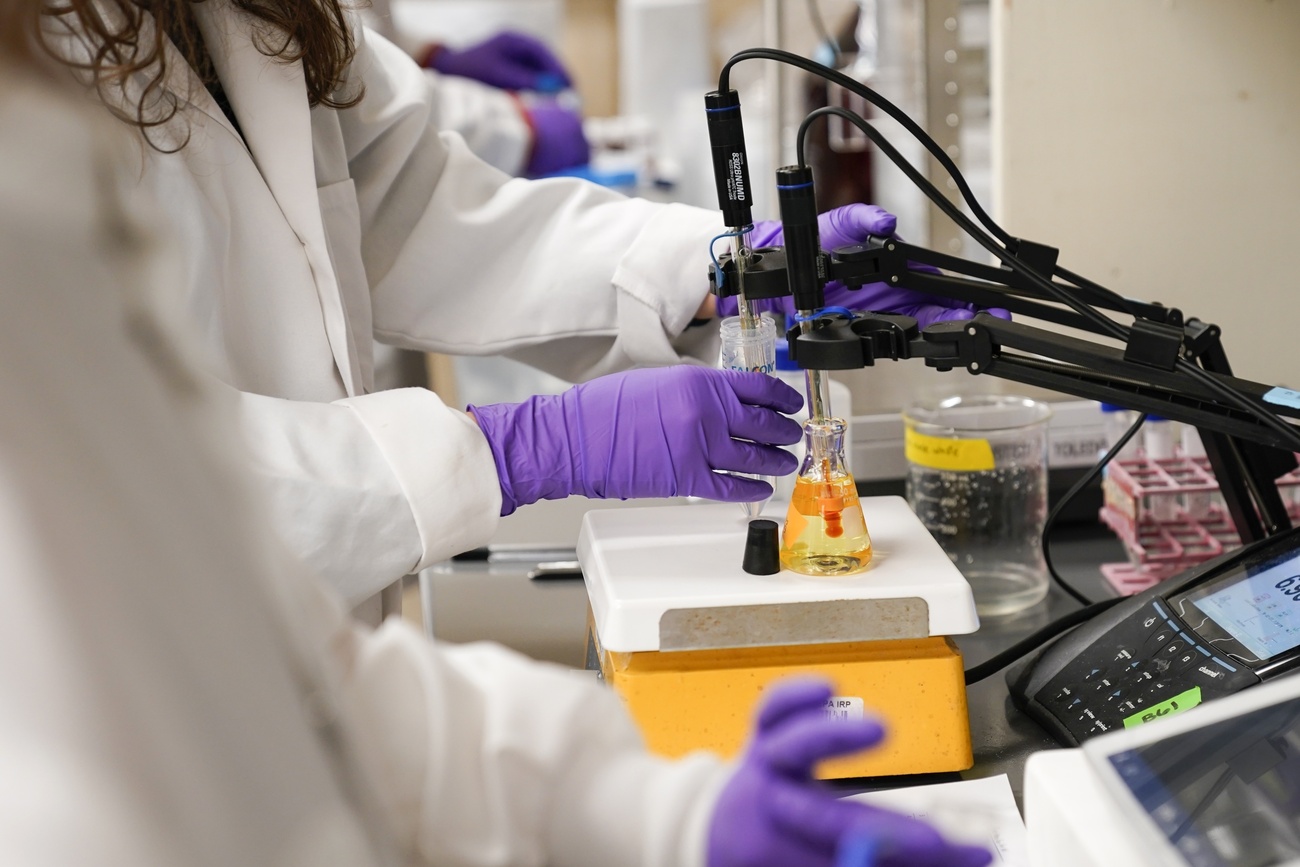
Switzerland ends study on exposure to PFAS and pesticides to cut costs

The Swiss Health Study is falling victim to cost-cutting pressures. The Federal Office for Public Health has decided to discontinue the project due to the federal government's savings measures. According to the health office, the study would have cost CHF10-12 million ($12.5-15 million) a year, meaning a total of up to CHF240 million would have been incurred over a period of 20 years.
+Get the most important news from Switzerland in your inbox
The Swiss Health Study was large-scale: 100,000 volunteers between the ages of 20 and 69 were to take part, representatively compiled according to age, gender and region. The volunteers’ urine and blood were to be regularly tested for pesticides, PFAS chemicals, heavy metals and other substances for at least 20 years. Their health and lifestyle, and the environmental pollution in their region of residence, would also have been documented.
The expectations were high: “We hope to find out the relationship between people’s illnesses, their behaviour and possible exposure to pollutants,” said project manager Natalie von Götz at the health office early last year.

More
‘We must break the taboo that ‘forever chemicals’ are indispensable’
In response to an enquiry, the public health office wrote that it had examined whether third parties could co-finance the study. However, this proved to be difficult due to the legal framework.
‘A huge missed opportunity’
Carlo Largiadèr speaks of a major missed opportunity. The associate professor of pharmacogenetics at the University of Bern was part of the four-person management team for the pilot study for the Swiss Health Study. “New substances are constantly coming into circulation, but there is a lack of observational data. The data from the health study would have been valuable for policy and prevention,” says Largiadèr.
The decision to cut costs has been criticised by Green Party health politician Manuela Weichelt: “The question arises as to what is more beneficial: investing money in research or paying for the consequential damage caused by chemicals through health insurance premiums and losing human lives prematurely,” says the parliamentarian. The Greens want to fight in parliament to ensure that money is made available. The gaps in knowledge are too great, they believe.
+ PFAS-contaminated meat still sold in eastern Switzerland
The public health office agrees. We are constantly in contact with many chemicals, it writes on the Swiss Health Study website, which is still online: “[However] we have no precise data on how large the quantities are in the body and what impact this has on our health.”
Pilot study showed PFAS in all blood samples
In all, 789 volunteers from the cantons of Vaud and Bern took part in the pilot study for the now discontinued health study; PFAS chemicals were detected in all blood samples. A health-relevant threshold value was exceeded in 3.6% of the samples.
The findings of the pilot study are available to everyone, writes the health office, adding: “Unfortunately, this knowledge will not be supplemented for the time being by findings that could be obtained with a long-term study.”
What is your opinion? Join the debate:
Translated from German with DeepL/gw
We select the most relevant news for an international audience and use automatic translation tools to translate them into English. A journalist then reviews the translation for clarity and accuracy before publication.
Providing you with automatically translated news gives us the time to write more in-depth articles. The news stories we select have been written and carefully fact-checked by an external editorial team from news agencies such as Bloomberg or Keystone.
If you have any questions about how we work, write to us at english@swissinfo.ch.

In compliance with the JTI standards
More: SWI swissinfo.ch certified by the Journalism Trust Initiative






























You can find an overview of ongoing debates with our journalists here . Please join us!
If you want to start a conversation about a topic raised in this article or want to report factual errors, email us at english@swissinfo.ch.